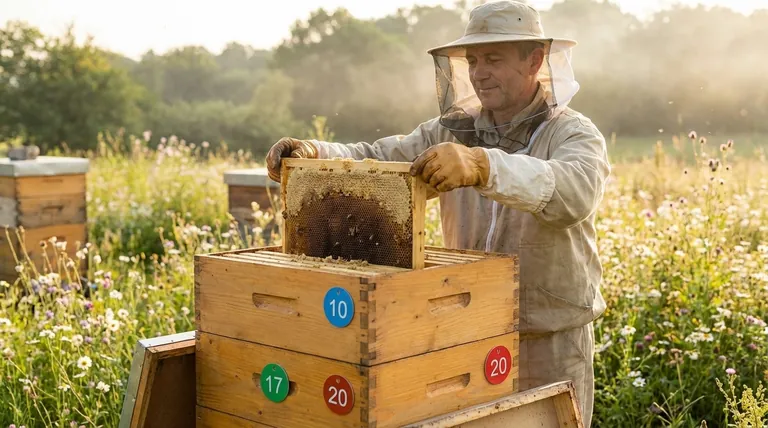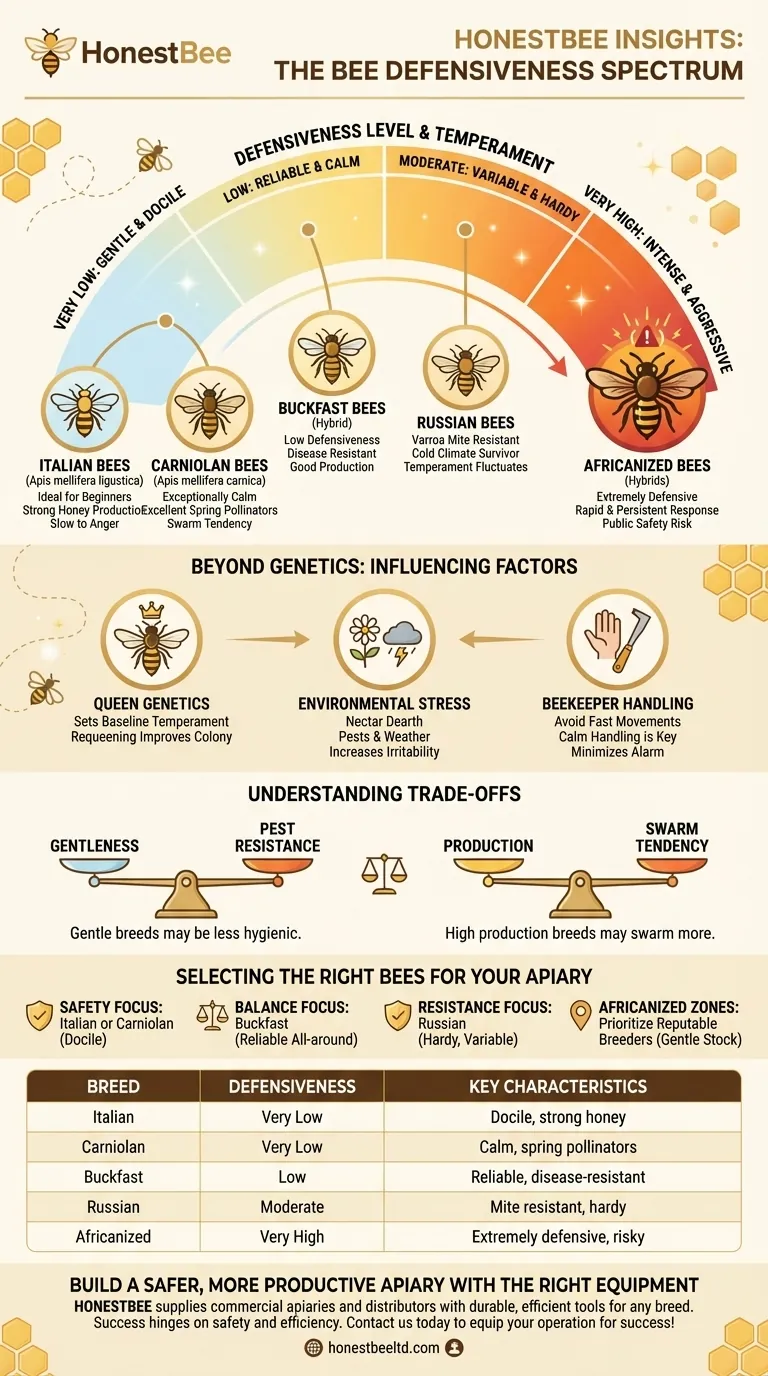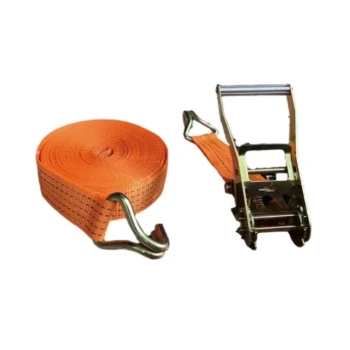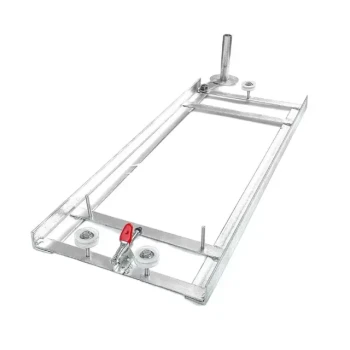To be direct, bee defensiveness varies significantly by breed and is a primary consideration for any beekeeper. At one end of the spectrum are breeds like Italian bees, known for their docile and manageable temperament, making them ideal for beginners. At the extreme opposite end are Africanized honey bees, which exhibit intense, rapid, and persistent defensive behavior that makes them unsuitable and dangerous for most apiary settings.
The choice of bee breed is about managing a spectrum of traits, not just finding the "gentlest" bee. While genetics set the baseline for defensiveness, factors like queen lineage, environmental stress, and beekeeper handling ultimately determine a colony's day-to-day temperament.

A Spectrum of Defensiveness: Common Bee Breeds Compared
A hive's temperament is one of its most important characteristics. While individual colony personality can vary, certain genetic lines are well-known for their predictable defensive behavior.
The Gentle Standard: Italian Bees (Apis mellifera ligustica)
Italian bees are often considered the gold standard for a calm temperament. They are slow to anger and typically allow for hive inspections with minimal defensive response.
This gentleness, combined with their strong honey production and prolific brood-rearing, makes them the most popular bee breed in North America, especially for new beekeepers.
The Calm Foragers: Carniolan Bees (Apis mellifera carnica)
Originating from Eastern Europe, Carniolan bees are exceptionally gentle, often considered even more docile than Italians. They are known for remaining calm on the comb during inspections.
They overwinter with smaller populations and build up explosively in the spring, making them excellent pollinators for early crops. Their primary management challenge is a strong tendency to swarm.
The Resilient Hybrid: Buckfast Bees
Buckfast bees are not a natural subspecies but a hybrid developed by Brother Adam at Buckfast Abbey. They were specifically bred for a combination of positive traits, including low defensiveness, high honey production, and good disease resistance.
Because they are a carefully selected hybrid, their temperament is generally very reliable and calm, making them another outstanding choice for beekeepers of all levels.
The Hardy Survivor: Russian Bees
Selected for survival in cold climates and, most importantly, for resistance to the Varroa mite, Russian bees present a more variable temperament.
While generally more defensive than Italians or Carniolans, they are far less so than Africanized bees. Their defensiveness can fluctuate with nectar availability and queen genetics, making them better suited for beekeepers with some experience.
The Apex of Defense: Africanized Bees (Hybrids)
Africanized honey bees (AHB) are hybrids between European honey bees and the African subspecies Apis mellifera scutellata. They are defined by their extreme defensiveness.
They have a much larger "alarm zone" around the hive, respond to disturbances faster, send more bees to defend, and will chase a perceived threat for a quarter-mile or more. They are a significant public safety risk and are not recommended for managed beekeeping.
Beyond Genetics: What Else Influences a Hive's Temperament?
Genetics are only the foundation. A colony's mood on any given day is influenced by a host of external and internal factors.
The Role of the Queen
The queen's genetics dictate the baseline temperament of the entire colony. A hive that suddenly becomes aggressive may have replaced its gentle queen with a new one that mated with more defensive drones. Requeening a hive with a queen from a known gentle lineage is the most effective way to improve a colony's temperament.
Environmental Stressors
A nectar dearth, or a period with no available flower nectar, is a primary cause of defensiveness. With no incoming food, bees become protective of their stored honey and can be significantly more irritable.
Predation from skunks, wasps, or other pests, as well as impending bad weather, can also put a colony on high alert.
Beekeeper Handling
Your actions have a direct impact. Fast, jerky movements, bumping the hive, or crushing bees will trigger alarm pheromones and a defensive response. Calm, smooth, and deliberate handling is essential for a peaceful inspection.
Understanding the Trade-offs
Choosing a bee breed involves balancing defensiveness against other critical survival and production traits. There is no single "perfect" bee.
Gentleness vs. Pest Resistance
Highly gentle breeds like Italians can sometimes be less hygienic and more susceptible to pests like Varroa mites. In contrast, Russian bees, which can be more defensive, possess natural traits that help them combat mite infestations more effectively.
Production vs. Swarm Tendency
Gentle and productive breeds like Carniolans are known for their strong desire to swarm, which requires more intensive management from the beekeeper to prevent. Breeds like the Buckfast were developed specifically to moderate this swarm instinct while retaining gentleness.
The "Mutt" Factor
Unless you are buying from a specialized breeder, most honey bees are hybrids of various subspecies. Open-air mating means a queen's offspring can have a wide range of traits. A hive's temperament can easily "drift" over a few generations as it incorporates local drone genetics, which may come from more defensive colonies.
Selecting the Right Bees for Your Apiary
Your choice should be a deliberate one based on your specific goals, environment, and experience level.
- If your primary focus is safety and a gentle learning experience: Choose Italian or Carniolan bees for their famously docile temperaments.
- If your primary focus is a balance of production, gentleness, and disease resistance: Consider Buckfast bees, which were bred to be an excellent and reliable all-around option.
- If your primary focus is mite resistance and overwintering in a cold climate: Look into Russian bees, but be prepared for a more variable and potentially defensive temperament.
- If you are in an area with Africanized genetics: Prioritize purchasing queens from reputable breeders to ensure you are starting with gentle, manageable stock.
Choosing the right genetics is the first step toward building a productive and safe partnership with your honey bees.
Summary Table:
| Breed | Defensiveness Level | Key Characteristics |
|---|---|---|
| Italian Bees | Very Low | Docile, ideal for beginners, strong honey production |
| Carniolan Bees | Very Low | Exceptionally calm, excellent spring pollinators |
| Buckfast Bees | Low | Reliable hybrid, disease-resistant, gentle |
| Russian Bees | Moderate | Varroa mite resistant, hardy, variable temperament |
| Africanized Bees | Very High | Extremely defensive, persistent, public safety risk |
Build a Safer, More Productive Apiary with the Right Equipment
Managing hive temperament starts with choosing the right bee breed, but it's equally dependent on using high-quality, reliable equipment. HONESTBEE supplies commercial apiaries and beekeeping equipment distributors with the durable, efficient tools needed to work confidently with any breed.
We understand that your success hinges on safety and efficiency. Our wholesale-focused operations provide the robust supplies—from protective gear to hive components—that help you manage colonies effectively, whether you're working with gentle Italians or more defensive Russian bees.
Ready to equip your operation for success? Contact our team today to discuss your specific needs and discover how HONESTBEE can support your apiary's growth and safety.
Visual Guide

Related Products
- Professional Engraved Round Hive Number Tags for Beekeeping
- Professional Galvanized Hive Strap with Secure Locking Buckle for Beekeeping
- Boardman Entrance Bee Feeder Durable Galvanized Steel and Wood Construction for Beekeeping
- Superhero Bee Mascot Costume Dynamic Professional Brand Champion Costume
- Durable Plastic Hive Number Set for Beekeeping
People Also Ask
- Do I need a hive stand? Essential for Bee Health & Easier Beekeeping
- Why is differential color marking of beehives a necessary process? Boost Accuracy & Biosecurity in Your Apiary
- What is the purpose of a hive stand, and why is it beneficial? Elevate Your Hive for Colony Health and Beekeeper Comfort
- What roles do hive fasteners, straps, and ventilation gates play during colony migration? Secure Your Hives for Transit
- Why are weather-resistant numbered plastic tags essential for bee research? Master Long-Term Hive Data Continuity
















